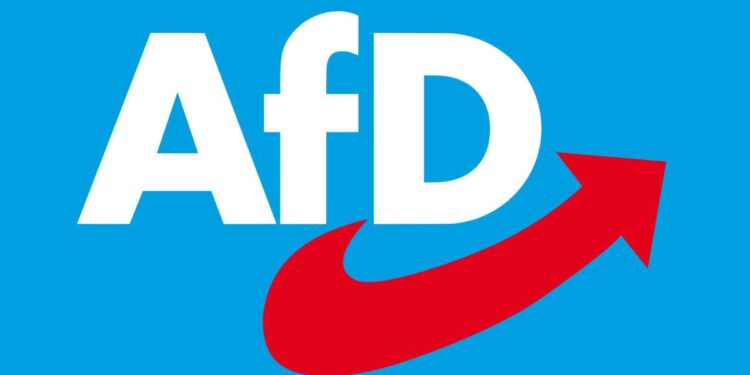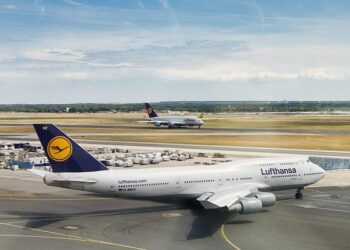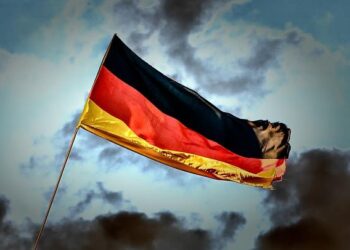The Alternative for Germany (AfD) is increasingly drawing support from the community of Russia Germans, a demographic with a complex history and unique social positioning within German society. Recent analyses reveal that this group, which migrated to Germany primarily after the fall of the Soviet Union, has shown growing alignment with the AfD’s nationalist and anti-immigration platform. This trend highlights broader challenges surrounding integration, identity, and political polarization in contemporary Germany, raising questions about the factors driving the Russia German electorate toward right-wing populism.
The AfD’s Appeal Among Russia Germans Explored
The Alternative for Germany (AfD) has found a unique foothold among Germany’s Russian-German community, a demographic once considered politically disengaged or aligned with mainstream parties. Many Russia Germans, who migrated during the post-Soviet era, resonate with the AfD’s rhetoric on immigration, national identity, and skepticism toward the European Union. The party’s messaging appeals particularly to those who feel culturally alienated and economically overlooked in certain regions.
Key factors contributing to this trend include:
- Cultural preservation: The AfD’s emphasis on traditional values aligns with the community’s desire to maintain their cultural heritage.
- Economic concerns: Many Russia Germans live in areas with limited job opportunities, fueling support for the AfD’s call for economic reform and stricter migration controls.
- Distrust of mainstream politics: A perceived disconnect with established parties drives a shift toward more radical alternatives.
| Year | AfD Support (%) | Russian-German Turnout (%) |
|---|---|---|
| 2017 | 18 | 55 |
| 2021 | 26 | 60 |
| 2024 (est.) | 32 | 63 |
Cultural Identity and Economic Factors Driving Support
The deep-rooted cultural identity of Russia Germans has played a significant role in shaping their political preferences. Having experienced displacement and a complex integration journey in Germany, many feel a strong connection to traditional values and social norms that they perceive as under threat. This sense of cultural preservation informs their increasing support for parties promising to uphold conservative ideals and national pride. The AfD’s messaging resonates with a demographic seeking acknowledgment of their unique heritage, framing their narratives around protecting Germanic traditions and opposing rapid social change.
- Language preservation: Advocating for the continued use and recognition of German dialects linked to their history.
- Family values: Emphasizing policies favoring traditional family structures and community cohesion.
- Immigration concerns: Expressing apprehension towards immigration policies perceived as destabilizing cultural unity.
Economic uncertainty further fuels this support, with many Russia Germans feeling left behind in Germany’s evolving job market. Industries that traditionally employed a large number of these migrants have undergone significant transformation or decline, leading to job insecurity and economic anxiety. The AfD capitalizes on these concerns by promoting economic nationalism, promising to protect domestic jobs and provide social stability. For many voters in this group, economic apprehension intertwines with cultural fears, driving them to endorse political platforms that claim to safeguard both their livelihoods and identity.
| Economic Factor | Impact on Russia Germans |
|---|---|
| Job Market Shifts | Increased unemployment and job insecurity |
| Social Welfare Access | Concerns about strain on benefits systems |
| Regional Economic Disparities | Uneven development affecting Eastern regions |
Strategies to Address Polarization and Foster Integration
To counteract the rising polarization among Russia Germans driving AfD support, it is essential to implement inclusive community programs that emphasize dialogue and shared experiences. Initiatives fostering cultural exchange, language support, and local engagement can bridge gaps created by mistrust and misinformation. For example, intergenerational mentorships pairing younger and older Russia German immigrants with diverse backgrounds may nurture mutual understanding and combat feelings of alienation.
Policymakers and civic organizations must also prioritize transparent communication and address economic insecurities that fuel dissatisfaction. Key strategies include:
- Enhanced social services tailored to the unique needs of Russia German communities
- Job training and education programs targeting skill gaps
- Community forums for airing grievances constructively
- Active engagement with local leaders to root out extremist rhetoric
| Strategy | Target Group | Desired Outcome |
|---|---|---|
| Mentorship Programs | Youth & Elder Russia Germans | Build trust across generations |
| Tailored Job Training | Unemployed Adults | Economic stability |
| Community Forums | All Residents | Reduced tensions |
| Local Leader Engagement | Policy Makers & NGOs | Counter radicalization |
Insights and Conclusions
As the AfD continues to gain traction among Russia Germans, analysts warn of the broader implications for Germany’s political landscape and social cohesion. Understanding the motivations and concerns of this community remains crucial for policymakers aiming to address the underlying issues and counter divisive narratives. The evolving dynamics highlight the need for inclusive dialogue and targeted engagement to bridge divides and uphold democratic values in Germany’s increasingly diverse society.
















